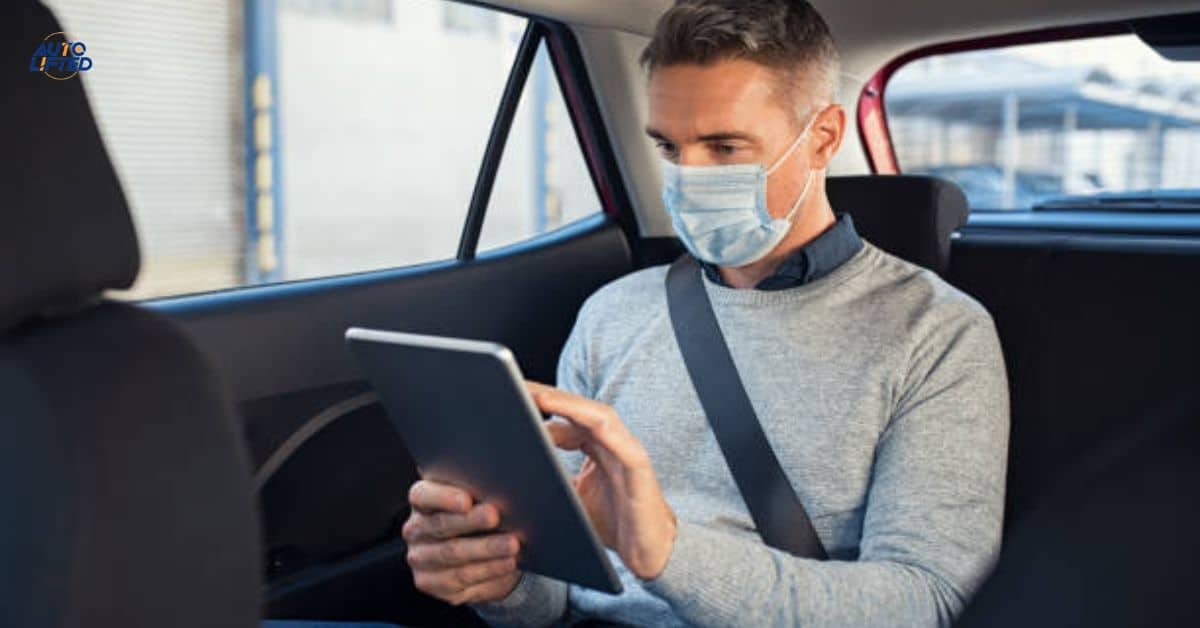COVID 19 can survive on surfaces inside a car for up to several days depending on the material. Regular cleaning and disinfection of car interiors are crucial to minimize the risk of transmission.
Worried about how long COVID 19 can linger in your car. Research suggests the virus can survive on surfaces inside your vehicle for days. Keeping your car clean and regularly disinfecting high touch areas can help reduce the risk of transmission and keep you and your passengers safe on the road.
COVID 19 can remain viable on surfaces within a car for an extended period potentially posing a risk of transmission. Studies suggest that the virus can survive for up to several days on various materials commonly found in vehicles such as plastic and stainless steel. Regular cleaning and disinfection of car interiors are crucial to minimize the spread of the virus and ensure a safer environment for passengers. Maintaining good hygiene practices such as frequent handwashing and avoiding touching the face further reduces the risk of infection while traveling.
How Long Does Coronavirus Survive on Surfaces?
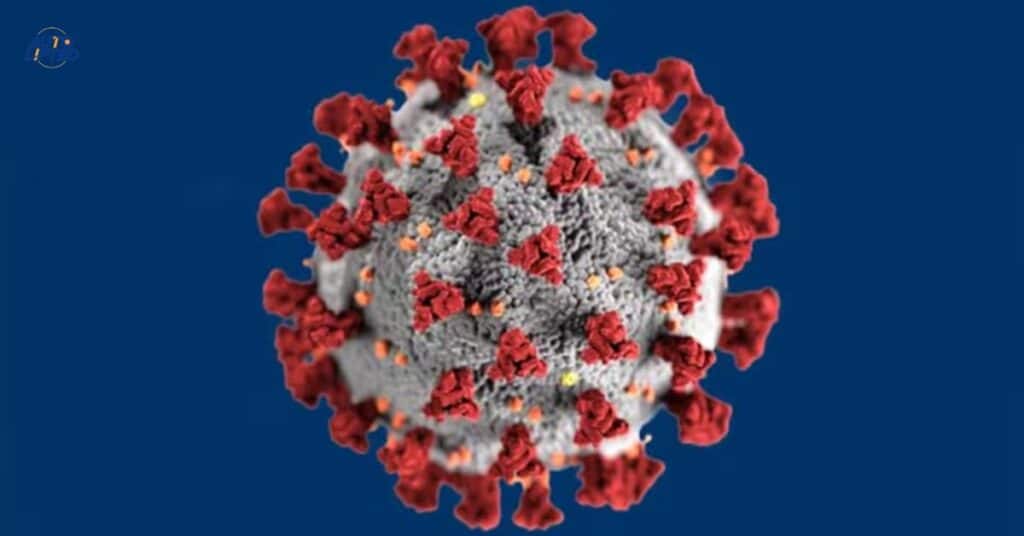
The coronavirus can survive on surfaces for varying lengths of time depending on factors such as the surface material and environmental conditions. Research indicates that it can persist for up to several days on surfaces like plastic and stainless steel.
Regular cleaning and disinfection of frequently touched surfaces are essential measures to help reduce the risk of transmission. Practicing good hygiene including handwashing and avoiding touching the face further aids in preventing the spread of the virus.
Also read this:http://ENGINE OIL LEAK CAUSES AND HOW TO FIX THEM
What’s the Best Way to Sanitize My Car’s Interior?
When sanitizing your car’s interior prioritize high-touch surfaces like the steering wheel door handles and gear shifters. Use EPA registered household disinfectants suitable for car surfaces to effectively kill germs. Wear disposable gloves and wash your hands before and after cleaning for added protection. Regularly sanitize your car to minimize the risk of COVID 19 transmission while driving.
- Focus on high touch surfaces like the steering wheel door handles and gear shifters when sanitizing your car’s interior.
- Use EPA registered household disinfectants suitable for car surfaces to effectively kill germs.
- Wear disposable gloves and wash your hands before and after cleaning for added protection.
- Regularly sanitize your car to minimize the risk of COVID-19 transmission while driving.
How to Disinfect Surfaces in My Car
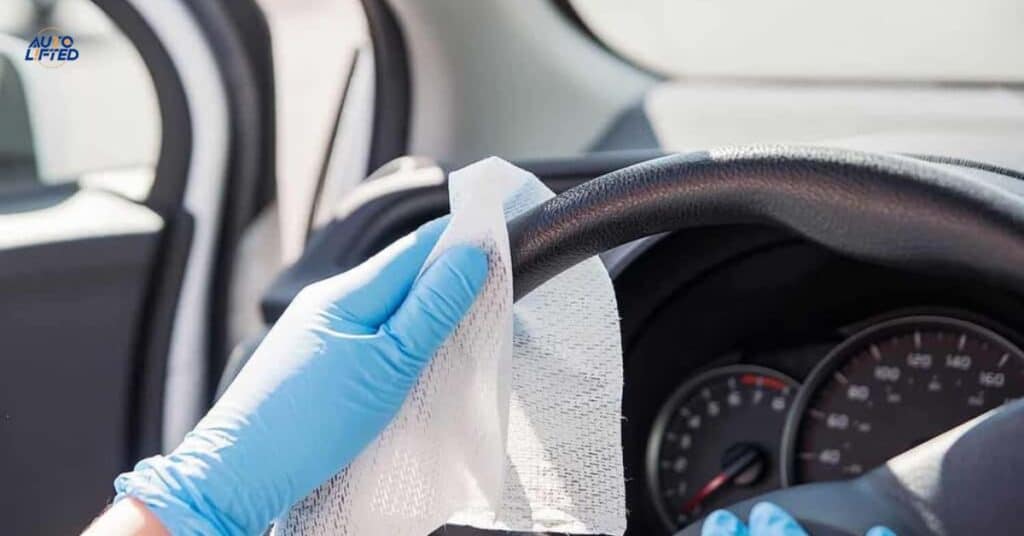
To effectively sanitize your car’s interior focus on high-touch surfaces like the steering wheel door handles and gear shifters. Use EPA registered disinfectants suitable for car surfaces and wear disposable gloves for added protection. Regular cleaning helps minimize the risk of COVID 19 transmission while driving.
Focus on High-Touch Areas: Prioritize disinfecting surfaces frequently touched by hands such as the steering wheel door handles and gear shifters.
Use Suitable Disinfectants: opt for EPA-registered household disinfectants designed for car surfaces to effectively kill germs.
Wear Protective Gear: Ensure your safety by wearing disposable gloves and washing your hands before and after cleaning.
Regular Maintenance: Implement a routine schedule for sanitizing your car’s interior to minimize the risk of COVID-19 transmission while driving.
Do I Need to Disinfect My Car’s Exterior?
Disinfecting your car’s exterior is an essential step in preventing the spread of germs particularly on commonly touched areas like door handles and mirrors. The outdoor surfaces are less conducive to virus survival regular cleaning helps maintain a hygienic environment.
Prioritize disinfection as part of your overall hygiene routine to reduce the risk of transmission to yourself and others. By keeping your car’s exterior clean, you contribute to creating a safer environment for everyone.
Am There Disinfectants I Should Avoid Using in My Car?
When choosing disinfectants for your car avoid using bleach or hydrogen peroxide as they can damage interior surfaces like vinyl and plastics. steer clear of ammonia-based cleaners for glass as they may cause deterioration of dashboard vinyl. Using appropriate disinfectants ensures effective cleaning without compromising the integrity of your car’s interior materials.
Always refer to manufacturer recommendations and test any new product in a small inconspicuous area before widespread use. Prioritizing safe and suitable disinfectants helps maintain a clean and germ-free car interior.
How to Clean Leather in My Car
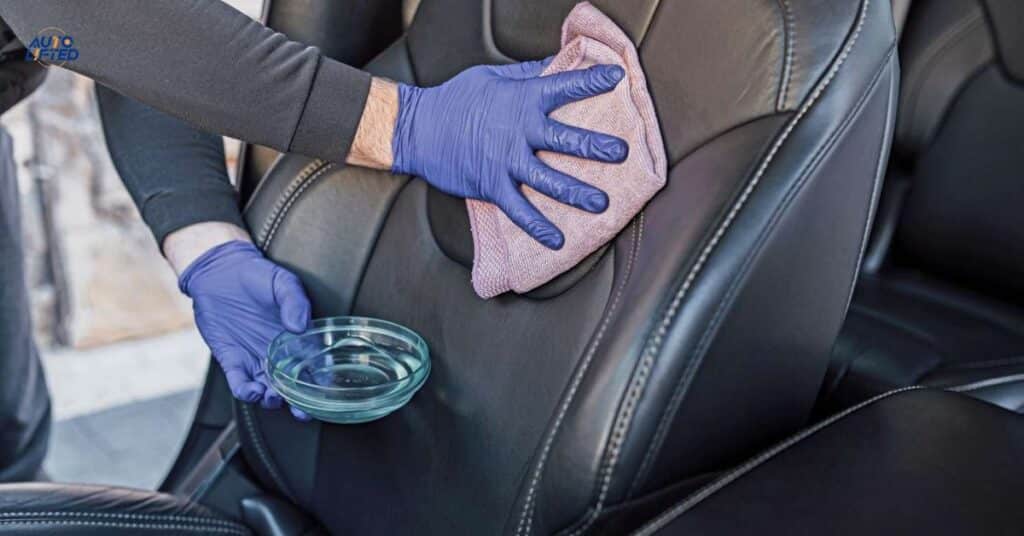
Cleaning leather in your car is simple yet crucial for maintaining its appearance and longevity. Start by vacuuming to remove any loose dirt or debris from the surface. Use a mild leather cleaner and a soft-bristled brush to gently scrub away stains. Wipe off excess cleaner with a damp cloth and allow the leather to air dry.
- Vacuum the seats to remove loose dirt or debris.
- Gently scrub the leather surface with a soft cloth and leather cleaner.
- Wipe off excess cleaner with a damp cloth.
- Apply a leather conditioner to keep the leather soft and prevent cracking.
- Repeat these steps regularly to maintain the appearance and longevity of your car’s leather interior.
Transmission of SARS-CoV-2 via Surfaces
Transmission of SARS-CoV-2 via surfaces is a concern as the virus can persist on various materials for extended periods. High-contact surfaces like doorknobs touchscreens and handrails pose a particular risk. the primary mode of transmission is through respiratory droplets touching contaminated surfaces and then touching the face can also lead to infection.
Regular disinfection of frequently touched surfaces along with hand hygiene practices is essential in reducing the spread of the virus. Maintaining a clean environment helps mitigate the risk of transmission and ensures safer surroundings for everyone.
Understanding SARS-CoV-2 on Surfaces
Understanding SARS Cove 2 on surfaces is crucial for controlling the spread of COVID-19. Studies show that the virus can survive on various surfaces for extended periods, ranging from hours to days. High contact surfaces like doorknobs countertops and electronic devices can harbor the virus and facilitate transmission.
Regular cleaning and disinfection of these surfaces are essential measures to reduce the risk of infection. By staying informed and practicing proper hygiene we can effectively mitigate the spread of the virus and keep ourselves and others safe.
How long does SARS-CoV-2 last?
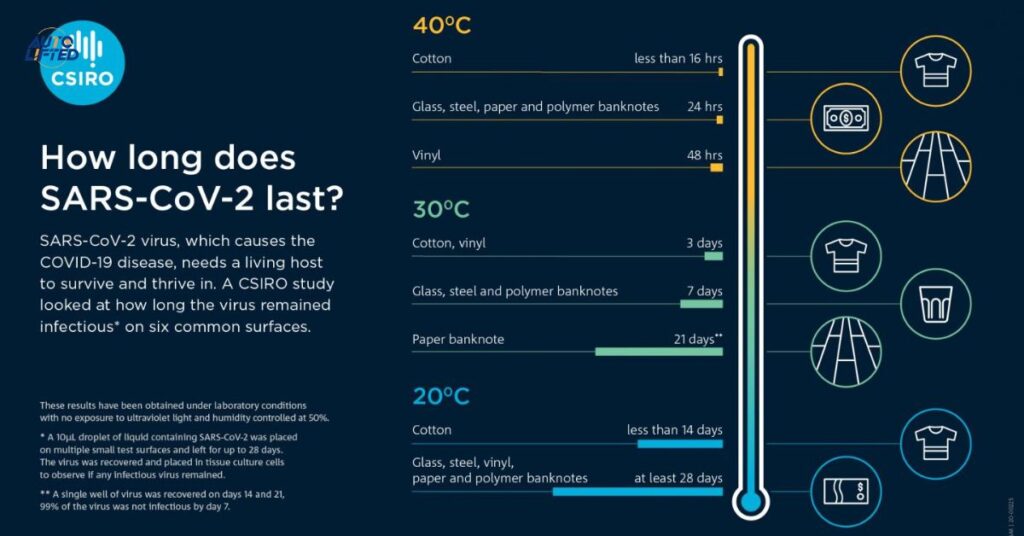
Understanding how long SARS-CoV-2 lasts on surfaces is crucial in preventing its spread. Studies indicate that the virus can survive on various surfaces for different durations ranging from hours to days. Factors such as surface material and environmental conditions can influence its survival time.
Regular cleaning and disinfection of frequently touched surfaces are essential to minimize the risk of transmission. By staying informed and adopting appropriate hygiene practices we can help protect ourselves and others from COVID 19.
How long can COVID-19 live on surfaces?
Understanding how long COVID 19 can survive on surfaces is vital for preventing its spread. Research suggests the virus can remain viable on various surfaces for hours to days depending on factors like surface type and environmental conditions.
High-touch surfaces such as doorknobs countertops and electronics pose a higher risk of transmission. Regular cleaning and disinfection of these surfaces are crucial steps in reducing the spread of the virus. By practicing proper hygiene and staying informed we can help minimize the risk of COVID 19 transmission in our environments.
Frequently Asked Questions
Are you still contagious after 5 days of COVID?
It depends on individual circumstances so it’s best to follow medical guidance regarding contagiousness after five days of COVID 19.
How long does COVID stay in your system?
COVID-19 can remain in your system for varying durations with most people clearing the virus within a few weeks but individual cases can differ.
When are you most contagious with COVID?
You are most contagious with COVID-19 shortly before and after the onset of symptoms but can also spread the virus while asymptomatic.
What is the incubation period for COVID?
The incubation period for COVID 19 from exposure to symptom onset typically ranges from 2 to 14 days.
Does COVID go away on its own?
COVID 19 can resolve on its own in mild cases but severe cases may require medical intervention.
Conclusion
Understanding the duration COVID 19 can survive in a car is crucial for maintaining safety during travel. Research indicates the virus can linger on various surfaces within the vehicle, particularly on frequently touched areas like door handles and steering wheels. Regular cleaning and disinfection of these surfaces using appropriate disinfectants, are essential to minimize the risk of transmission.
Practicing good hygiene habits such as frequent handwashing and avoiding face-touching further helps mitigate the spread of the virus while on the road. By staying vigilant and implementing these measures we can create safer travel environments for ourselves and others.

Passionate automotive enthusiast sharing insights, tips, and stories from the world of cars. Join me on an exhilarating journey through the roads of automotive excellence.
